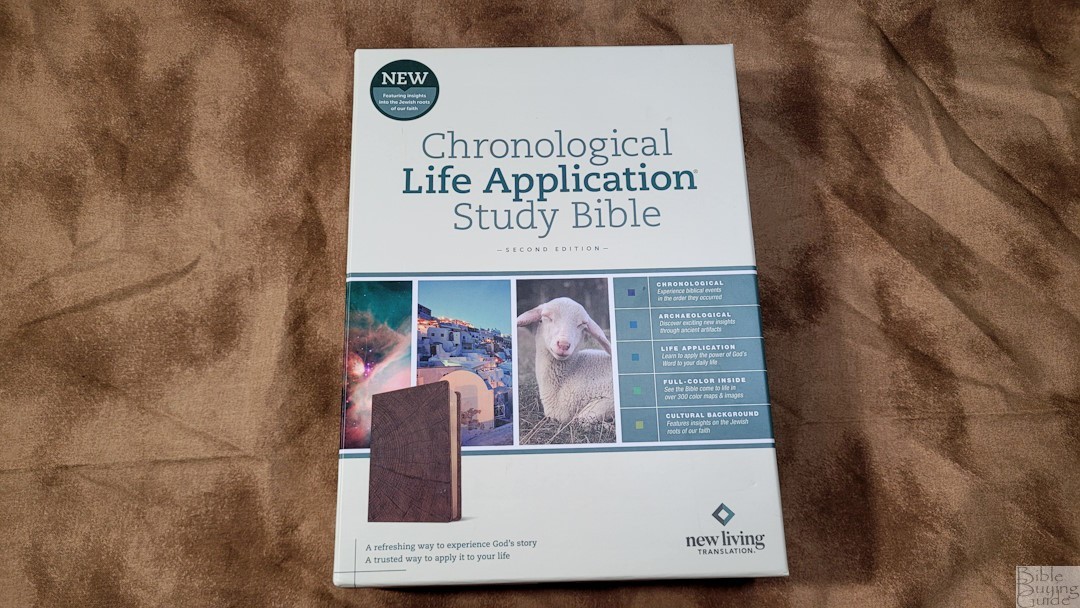
The newly released NLT Chronological Life Application Study Bible is the second edition of this popular study Bible. It’s been updated with new notes, lots of photos, and more. Many of the notes go back to the Jewish roots of our faith. It’s available in several covers. I’m reviewing the Heritage Oak Brown Leatherlike, ISBN 9781496475428, printed in China.
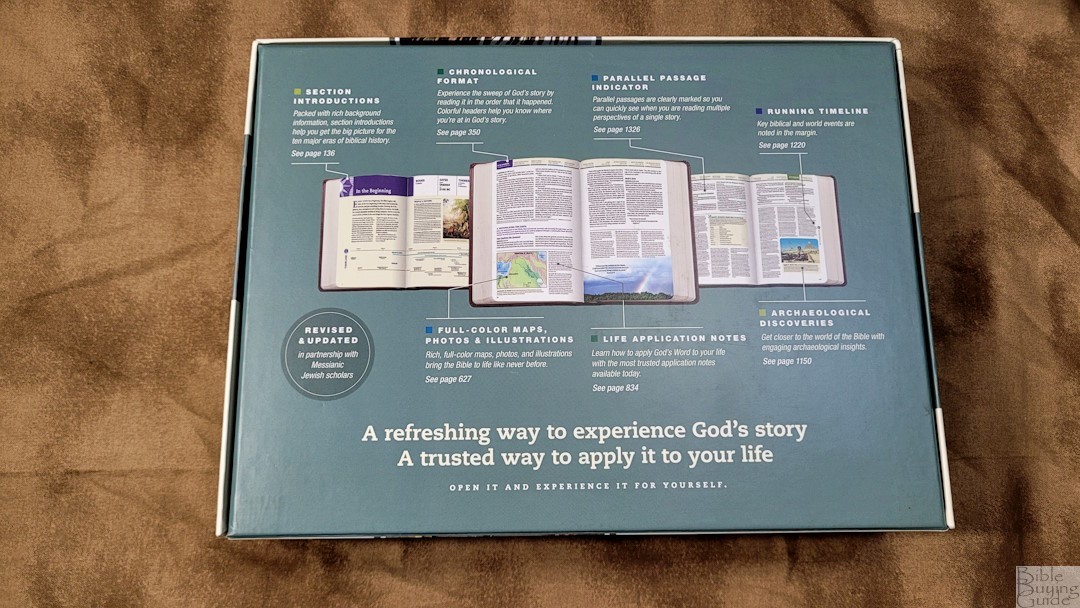
Tyndale provided this Bible in exchange for an honest review. I was not required to give a positive review, only an honest one. All opinions are my own.
_________________________________________________________
This Bible is available at (includes some affiliate links)
and many local Bible bookstores
_________________________________________________________
Table of Contents
- Video Review
- Chronology
- Cover and Binding
- Paper
- Typography
- Study Material
- Concordance
- Maps
- Conclusion
Video Review
Chronology
Rather than presenting the NLT in standard biblical order, his Bible presents Scripture in chronological order. It divides world history into 10 sections and includes a title that describes the era of history, the dates for that era, and shows the books of the Bible that fit into that era. Each era has a different color so you can tell at a glance which era you’re reading.
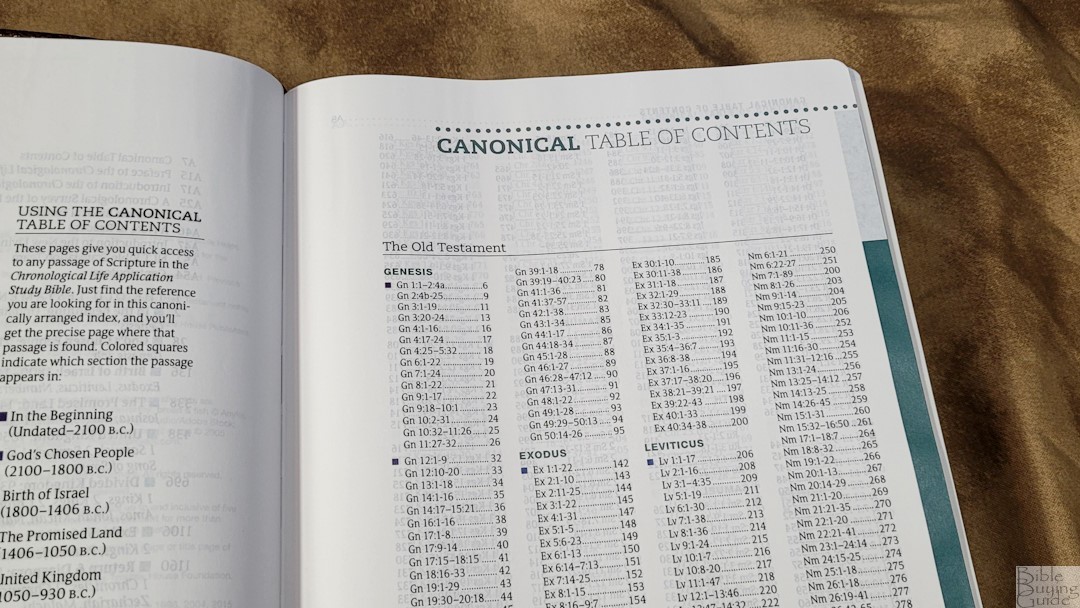
The Canonical Table of Contents presents the Bible in a canonical list. It shows the book name and chapter and verse numbers with the pages where each is found. This makes it easy to find any verse in the Bible, and it’s essential for navigating those verses.
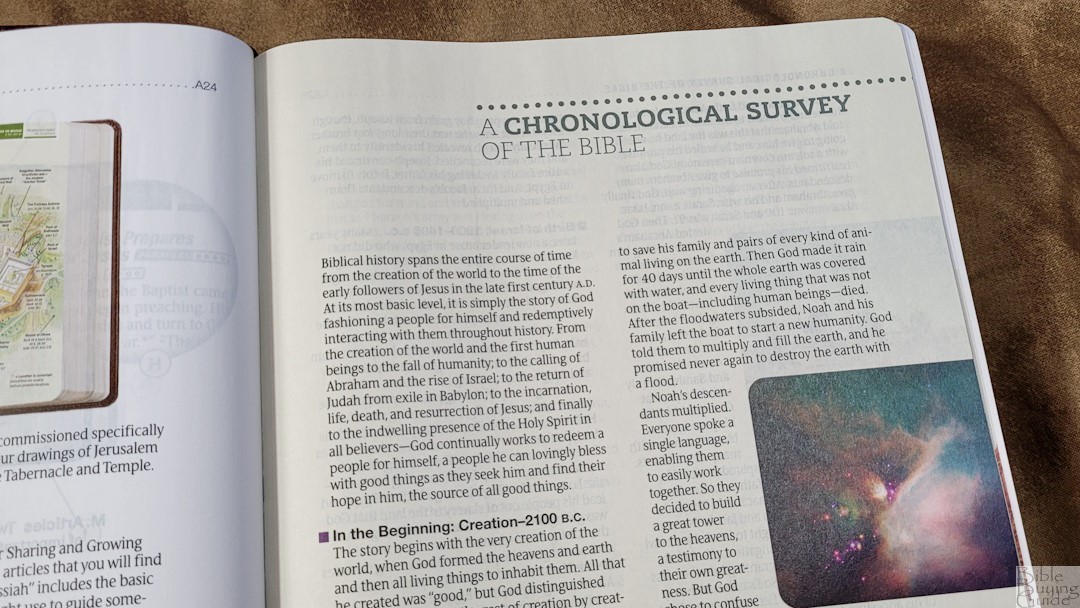
Following this is a large article called A Chronological Survey of the Bible. This is several pages with sections divided by dates. The sections describe the events for the range of dates. Photos help us understand the setting for each section.
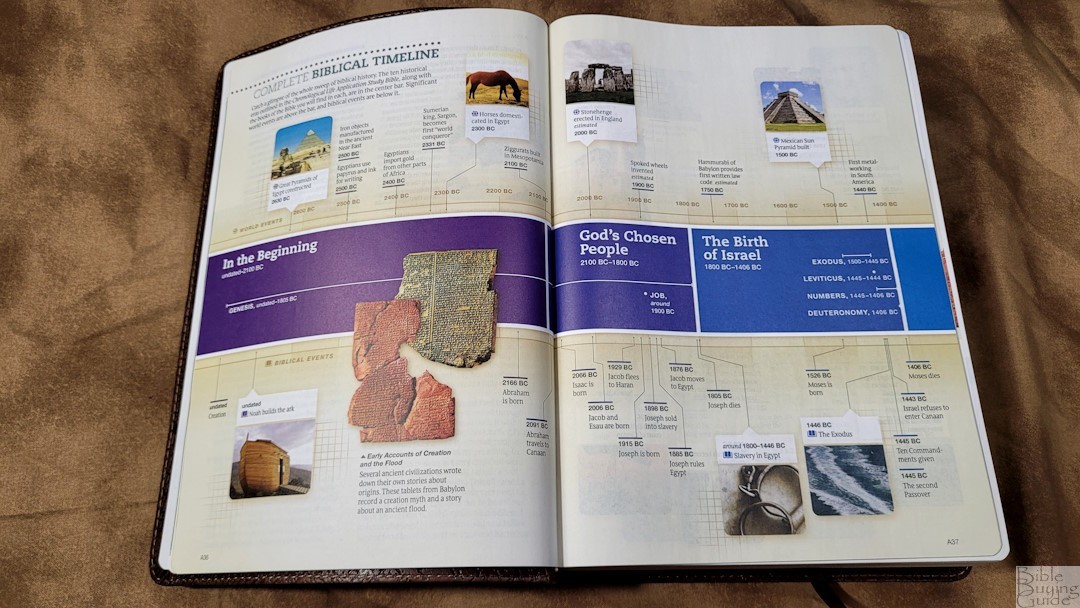
Next is a full-color timeline called the Complete Biblical Timeline. It includes images, dates, and short descriptions of key events. This is one of the most visually stunning timelines I’ve seen.
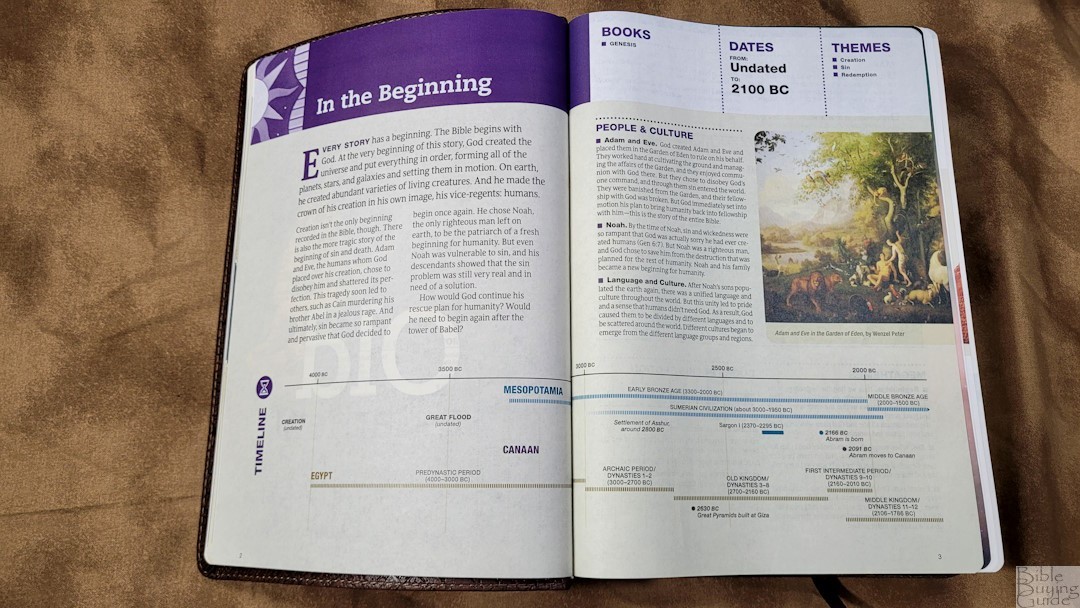
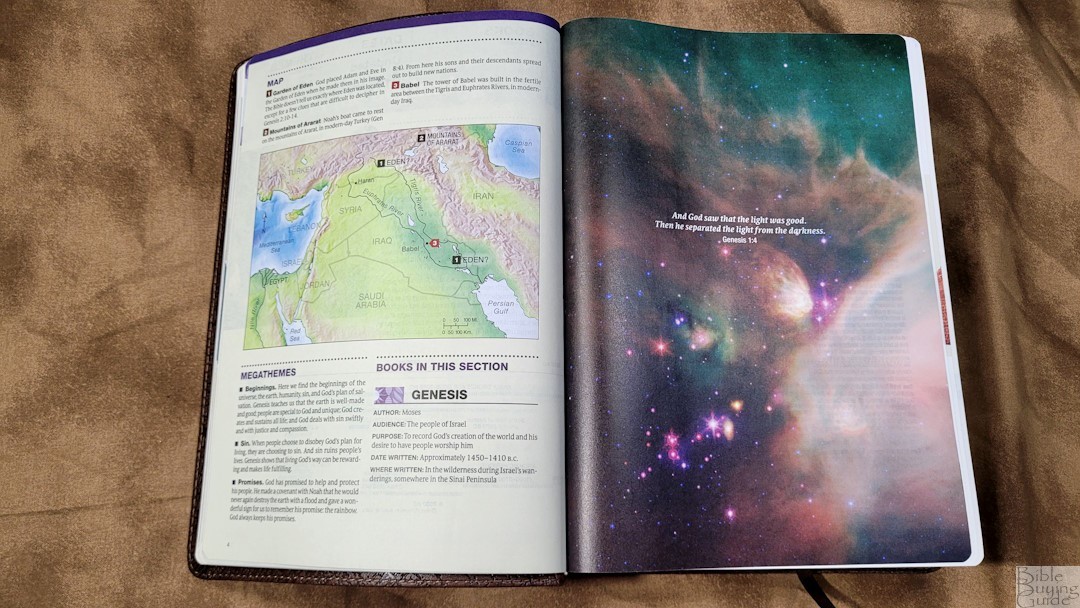
Each era has a detailed introduction with information, dates, the books that are included, themes, a timeline, and a photo to help visualize the setting. They also include a section called megathemes, information about the books in that section, and a detailed map with annotations.
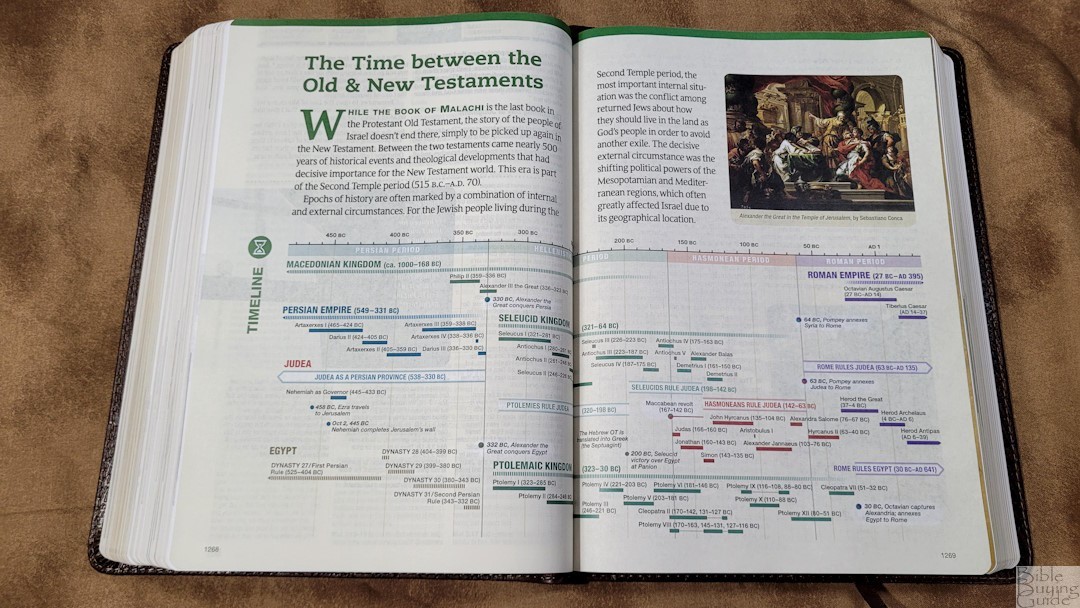
It’s difficult to know exactly when certain things happened, so they have to make educated guesses in certain instances. There may be differences between chronological timelines. Also, the chronological timeline can be difficult for some to follow. Some stories repeat, so reading can be tedious in certain places.
Cover and Binding
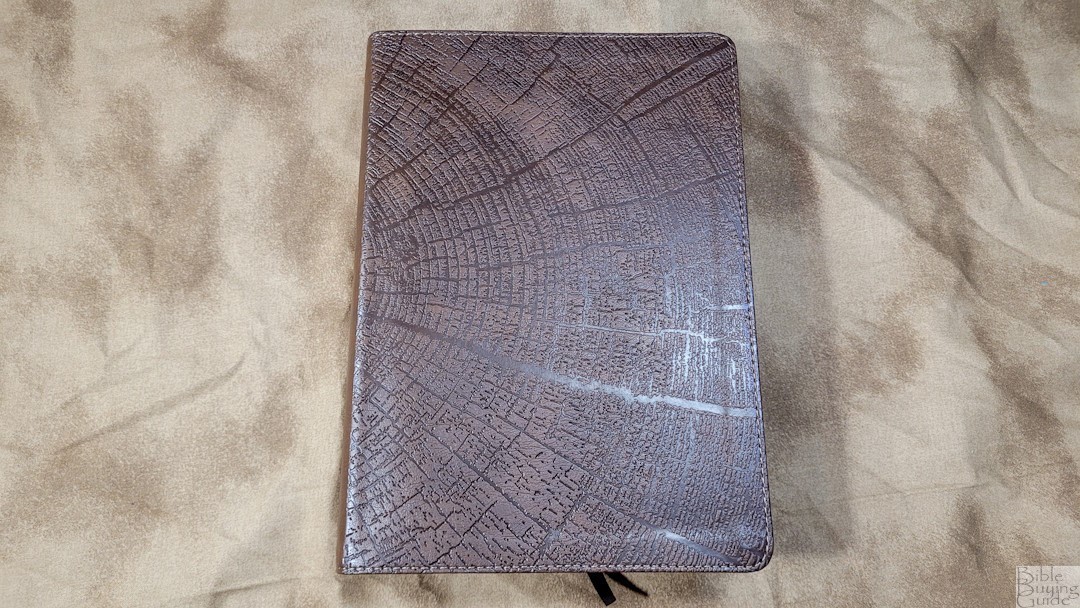
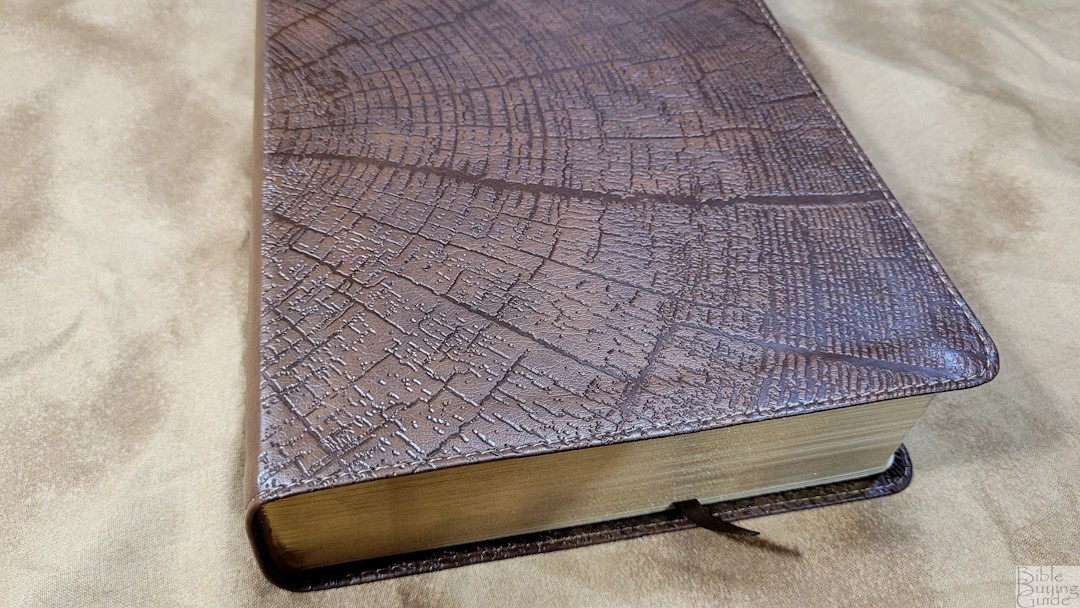
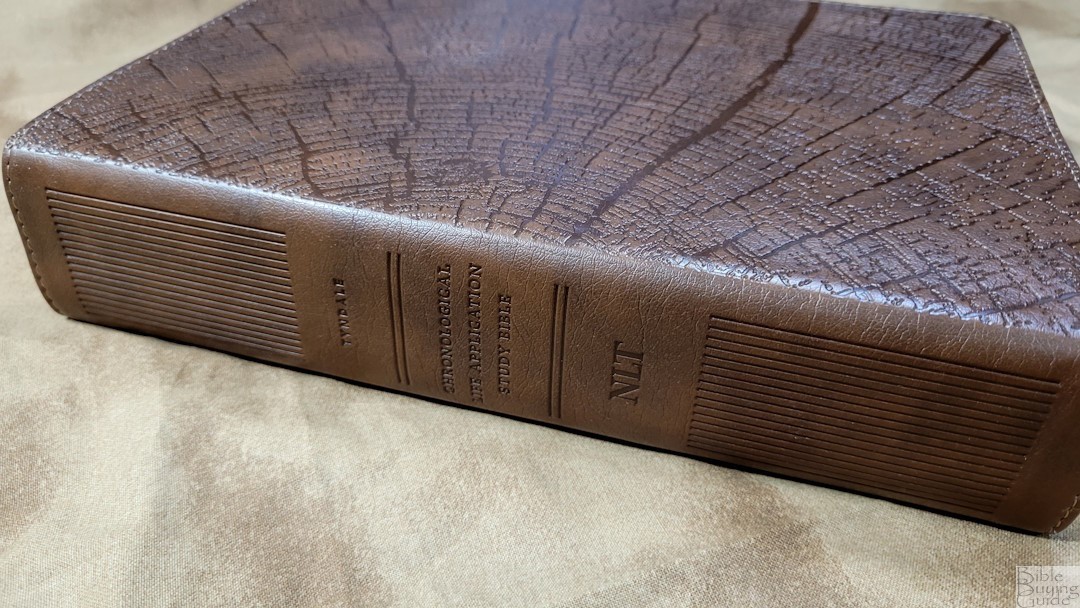

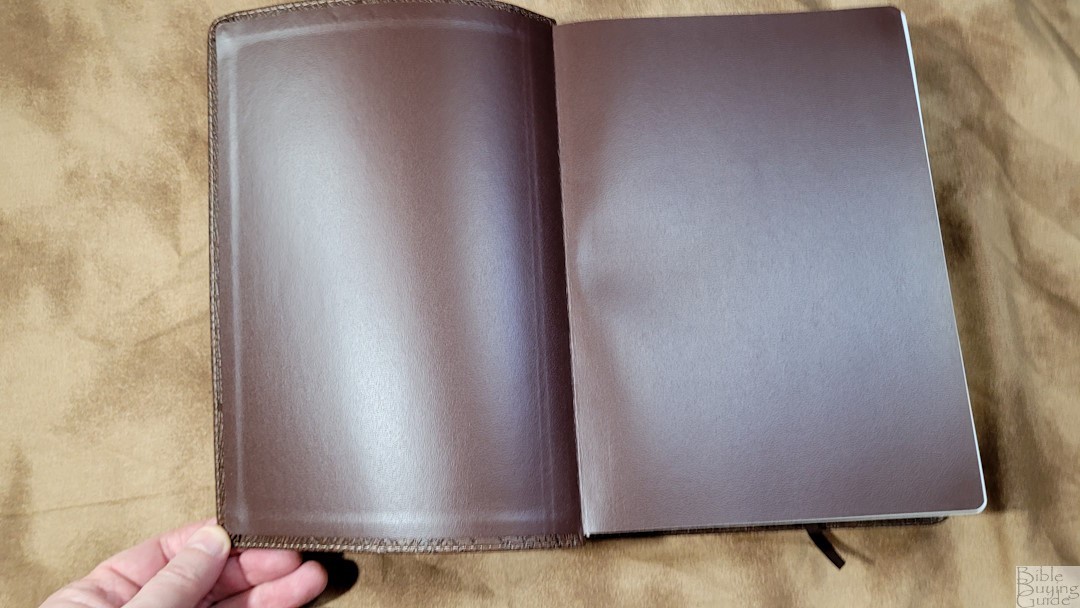
The cover is Heritage Oak Brown LeatherLike. This is an imitation leather and it has a debossed wood grain pattern that looks like tree rings on the front and back. The spine includes decorative lines and the text is debossed. There are no other colors on the cover. It has perimeter stitching. The liner is paste-down with a vinyl-like material. The block is sewn and it has no trouble staying completely open to any page. It has one brown ribbon that is 25″ wide. The ribbon seems a little narrow for the size of this Bible. The overall size is 6 7/8 x 9 1/2 x 1 7/8 and it weighs 3 lbs, 12.8 oz.
Paper
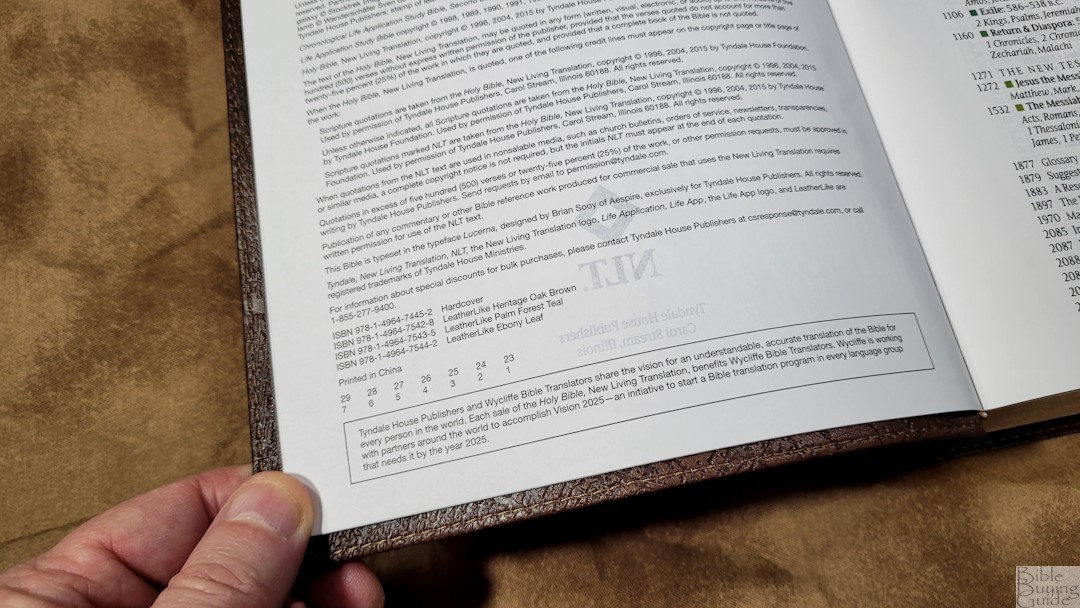
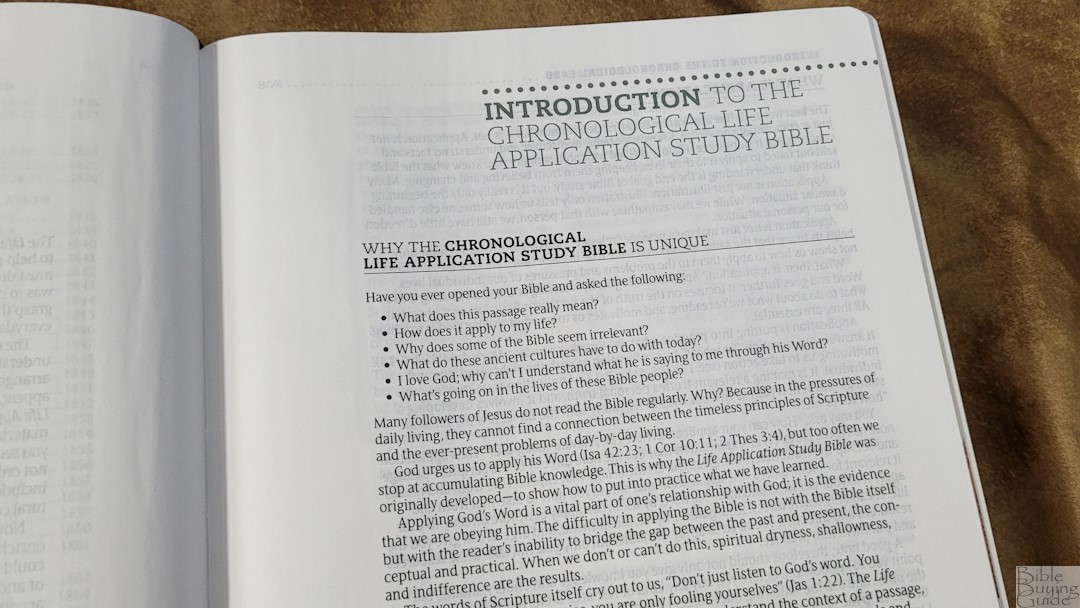
The paper is 30GSM. It’s extremely opaque, white in color, and seems to be coated. This is excellent paper and I find it to be easy to turn.
Typography
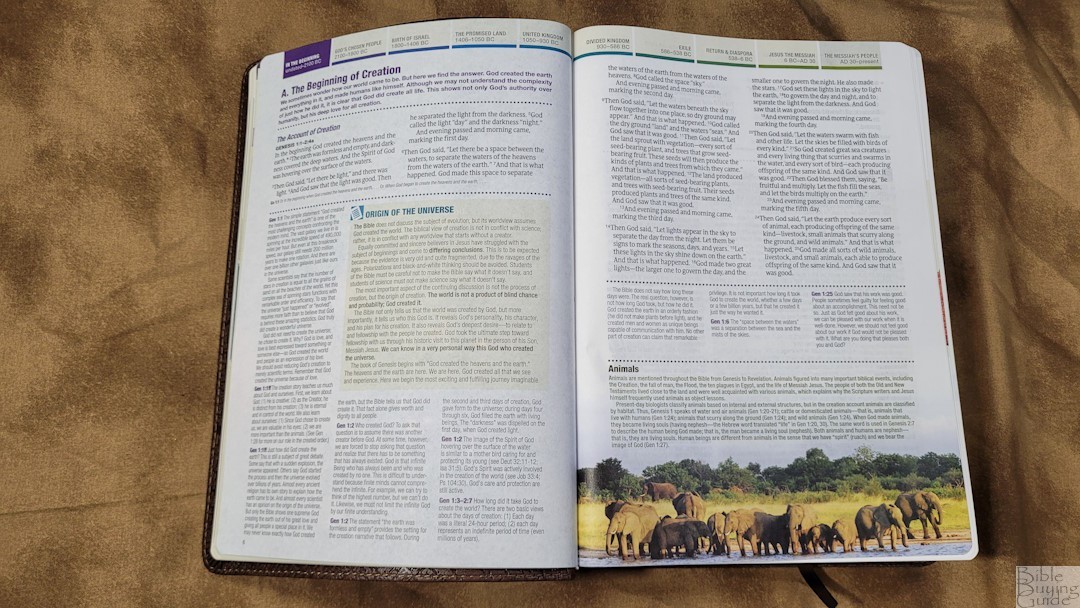
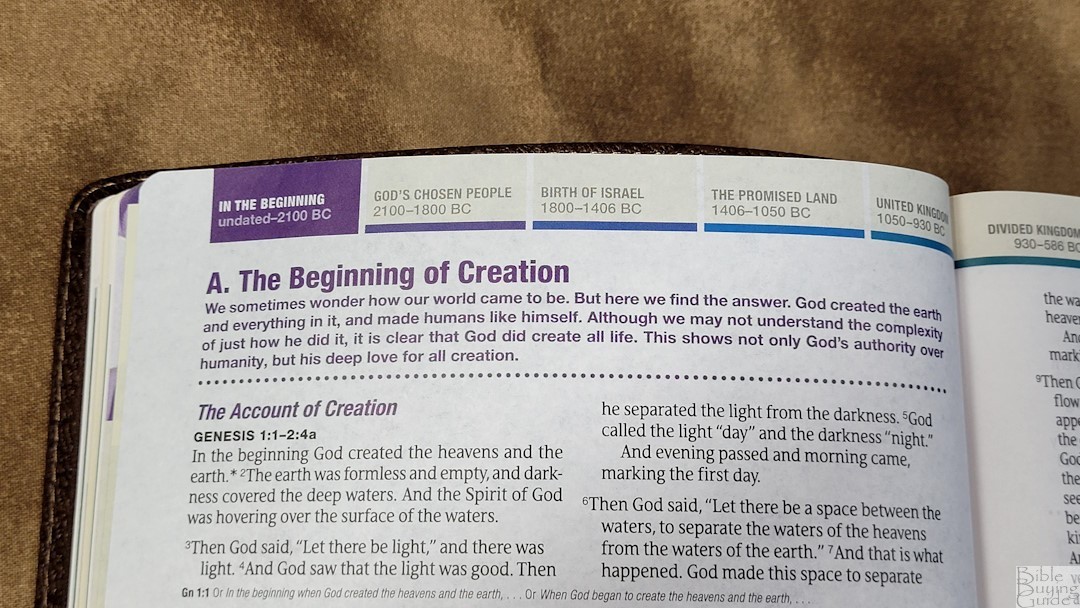
The text is presented chronologically in a double-column, paragraph layout with the standard NLT formatting. The header shows a timeline with the current timeline highlighted. Translation notes appear in a single column under the text in a smaller font. The notes are placed in three columns at the bottom of the page and are separated from the text with a dotted line. The various sections have different colors for their highlights.
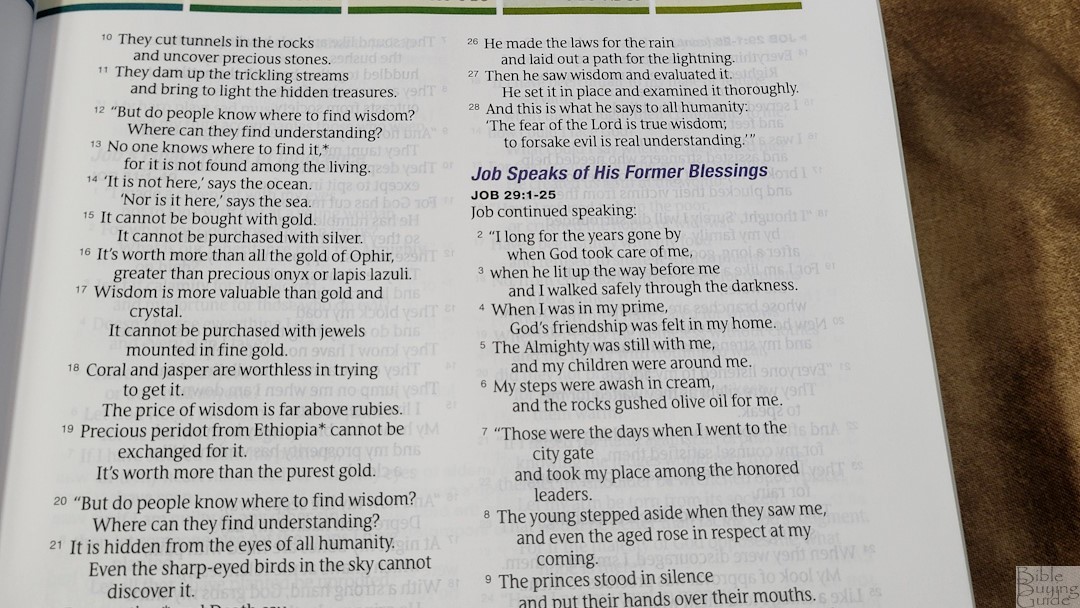
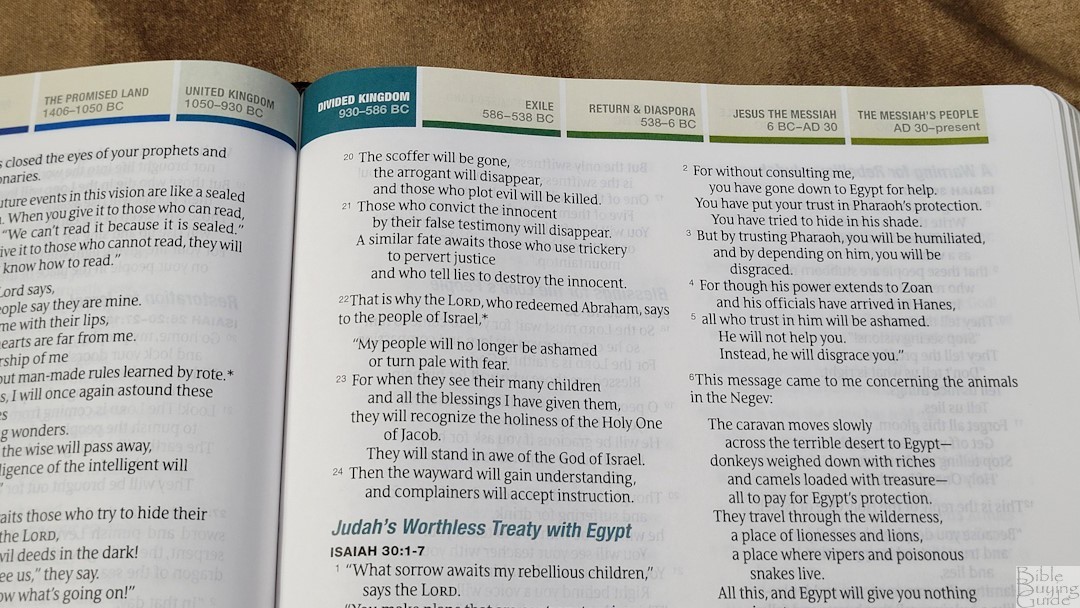
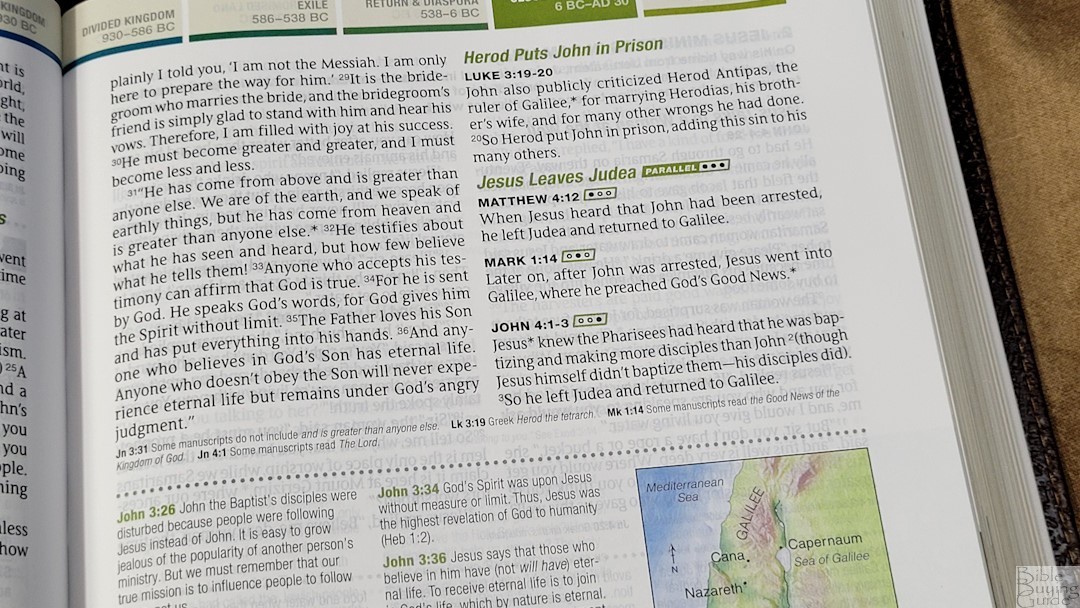
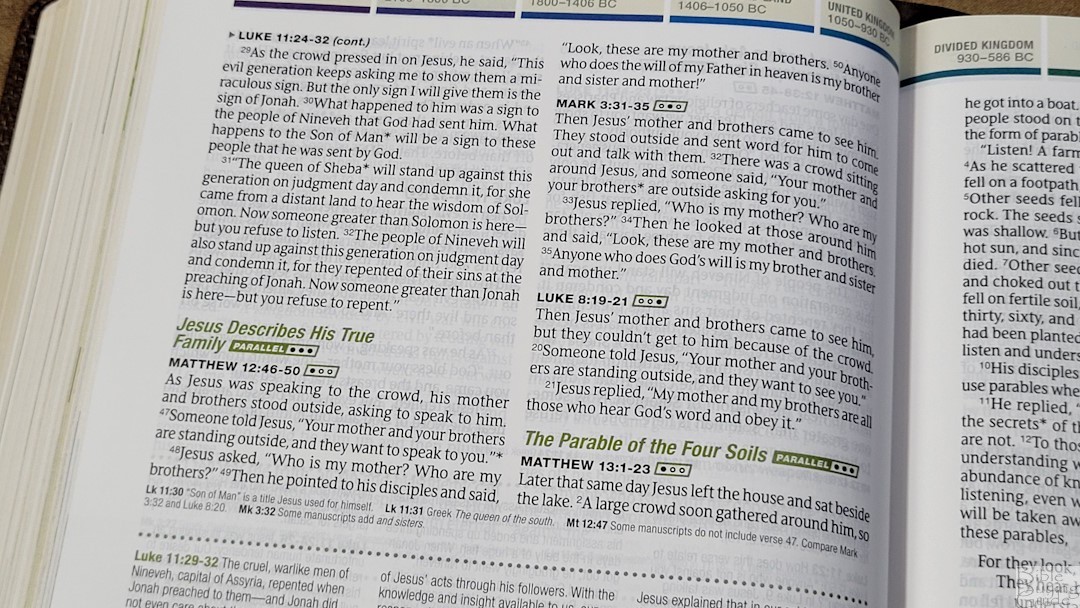
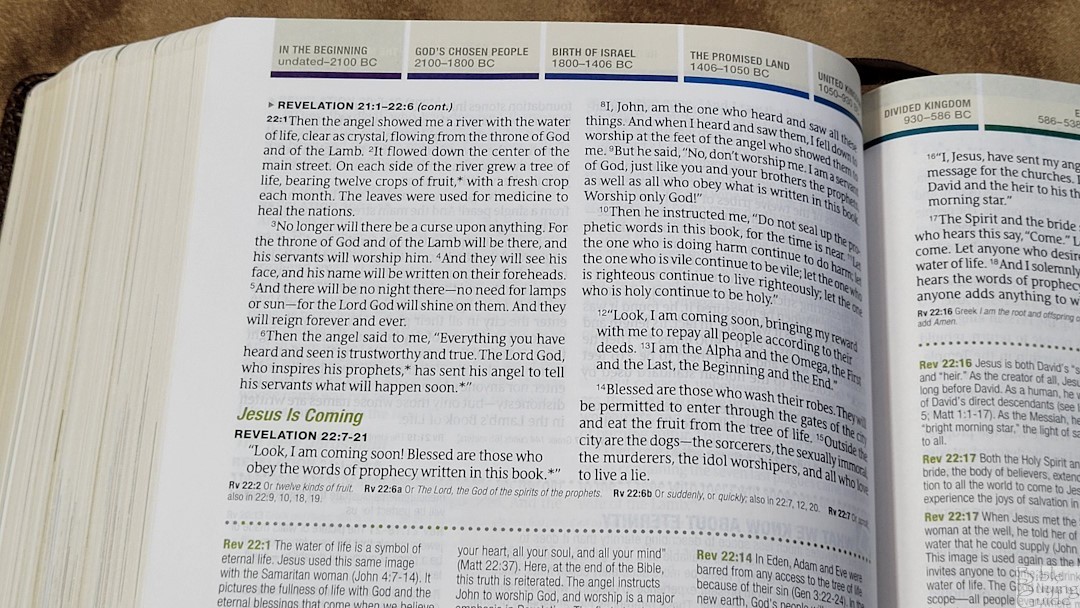
The typeface looks to be around 9 point. It’s black letter, dark, and consistent. It wasn’t typeset with line-matching, but that would be difficult in this setting since there are so many notes. The text is readable, but it has a lot of extra headers and markings, so it’s not designed for reading.
Study Material
Notes
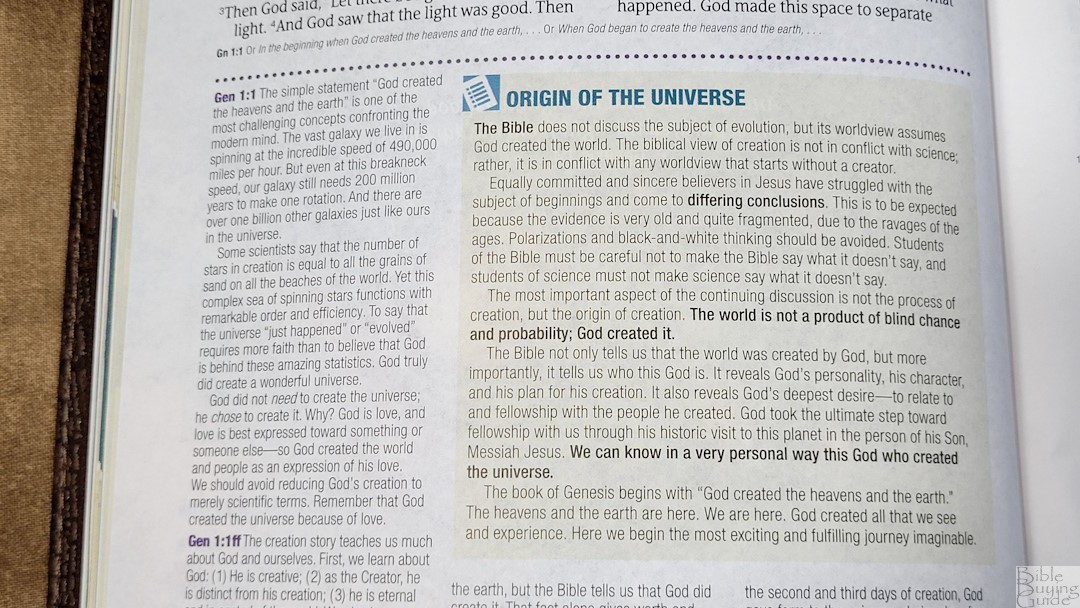
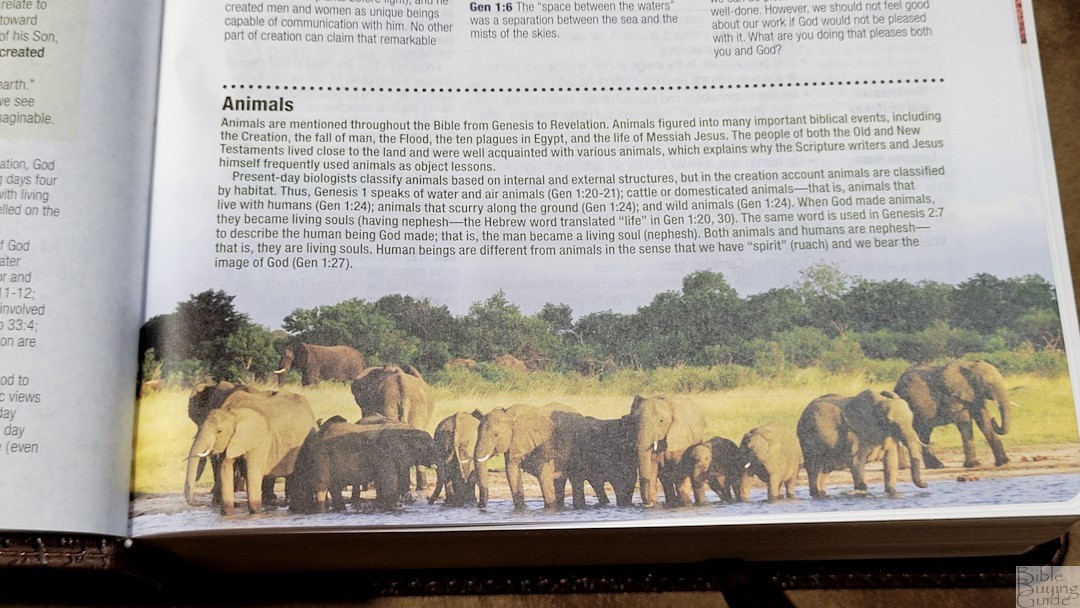
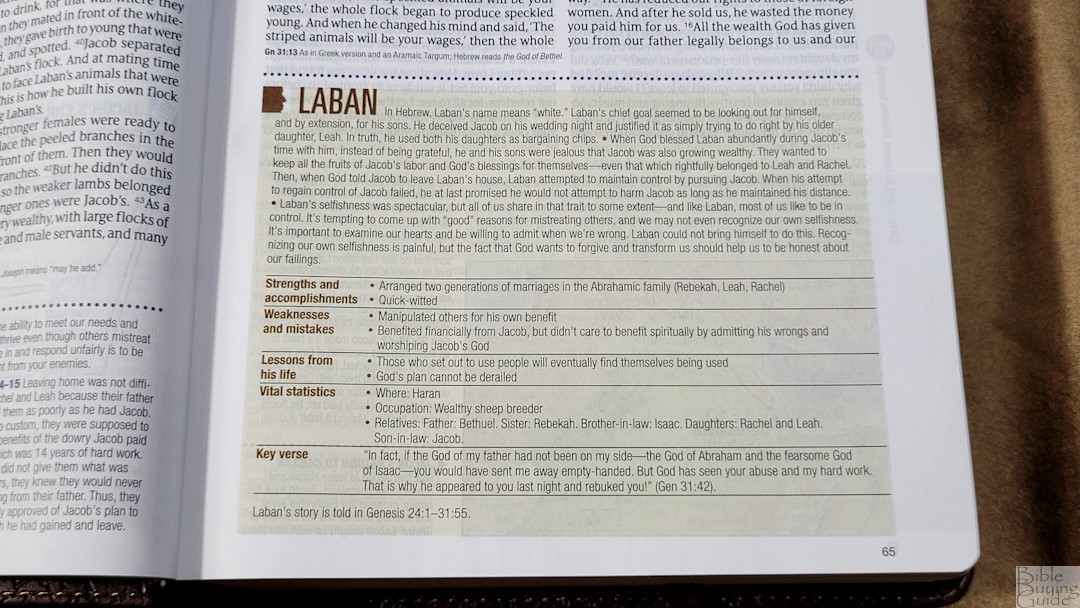
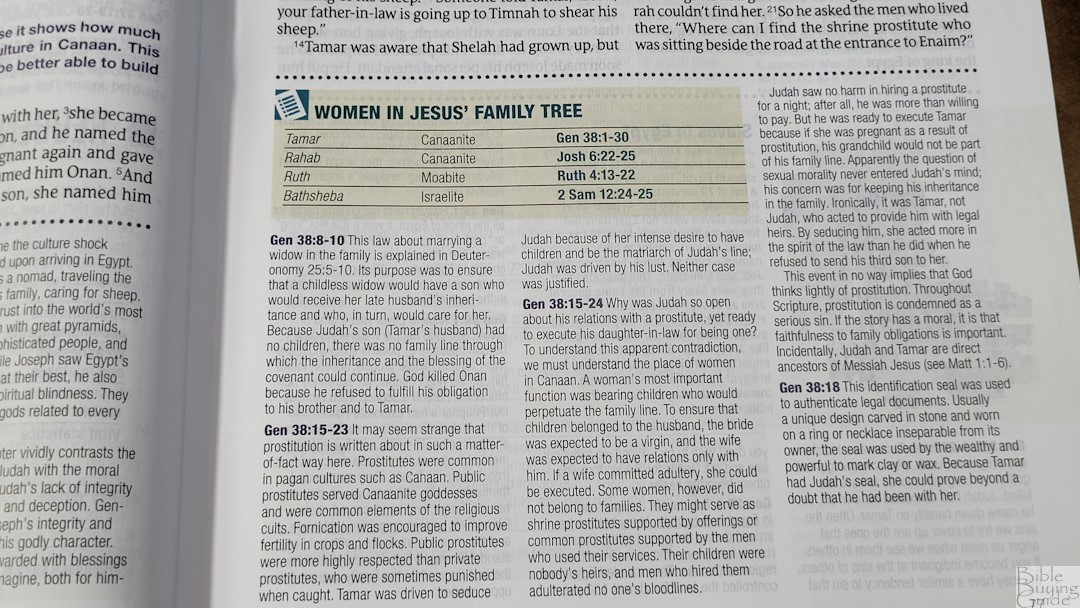
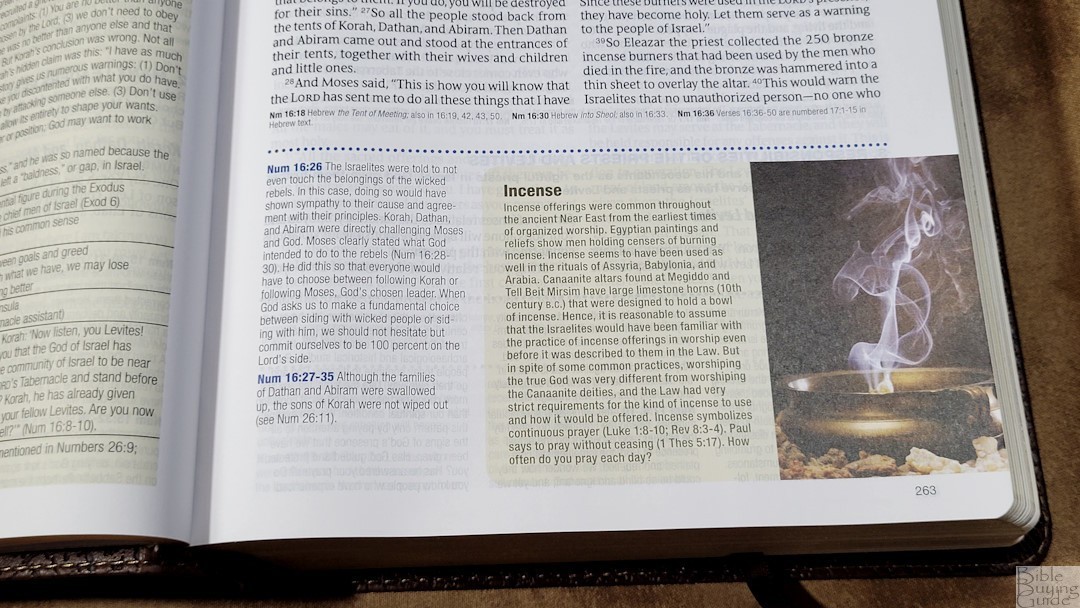
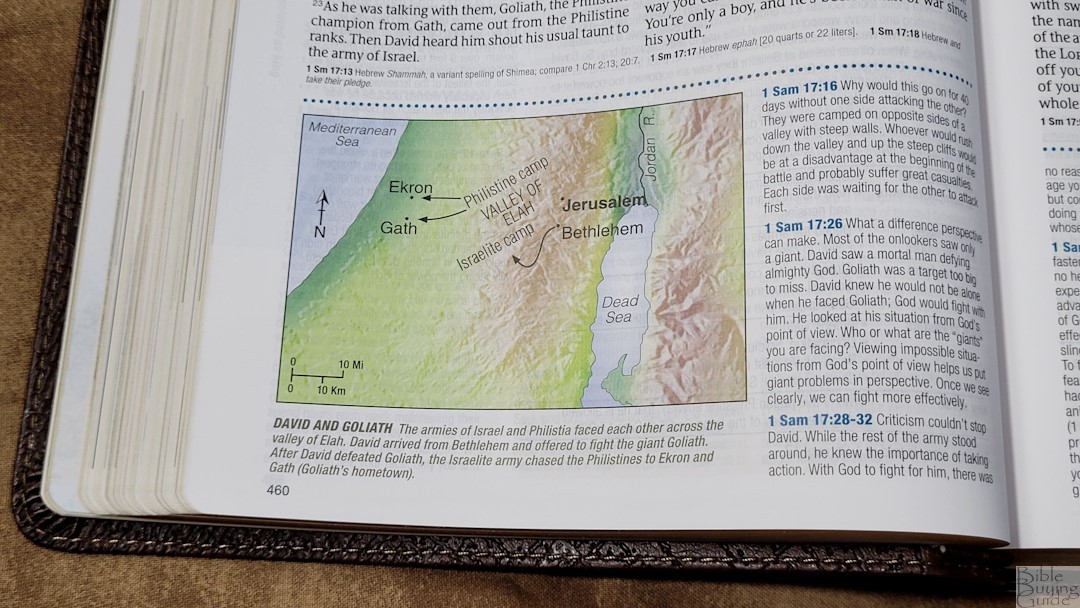
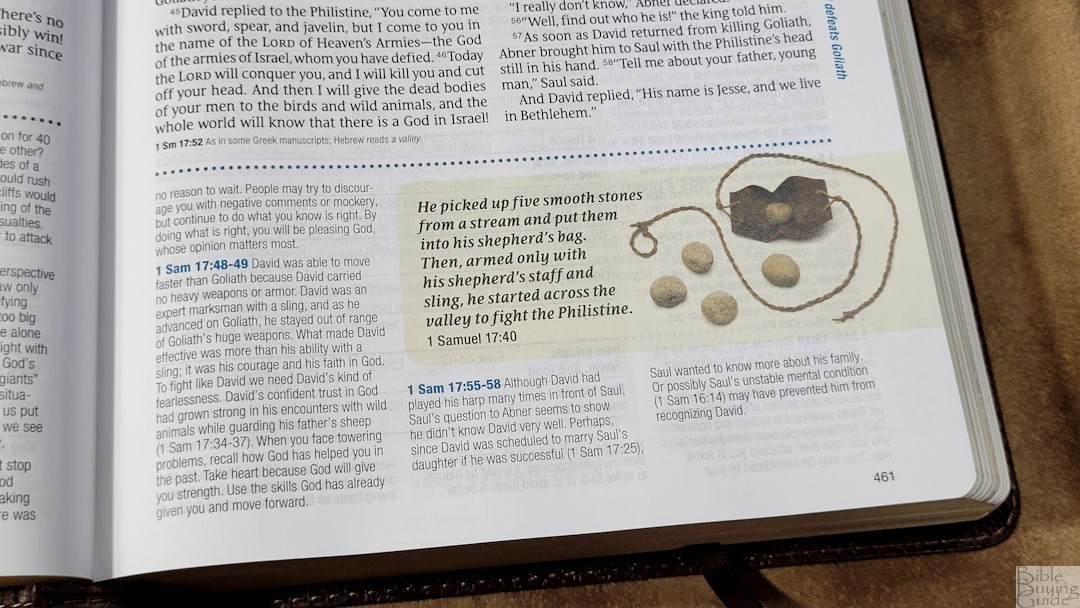
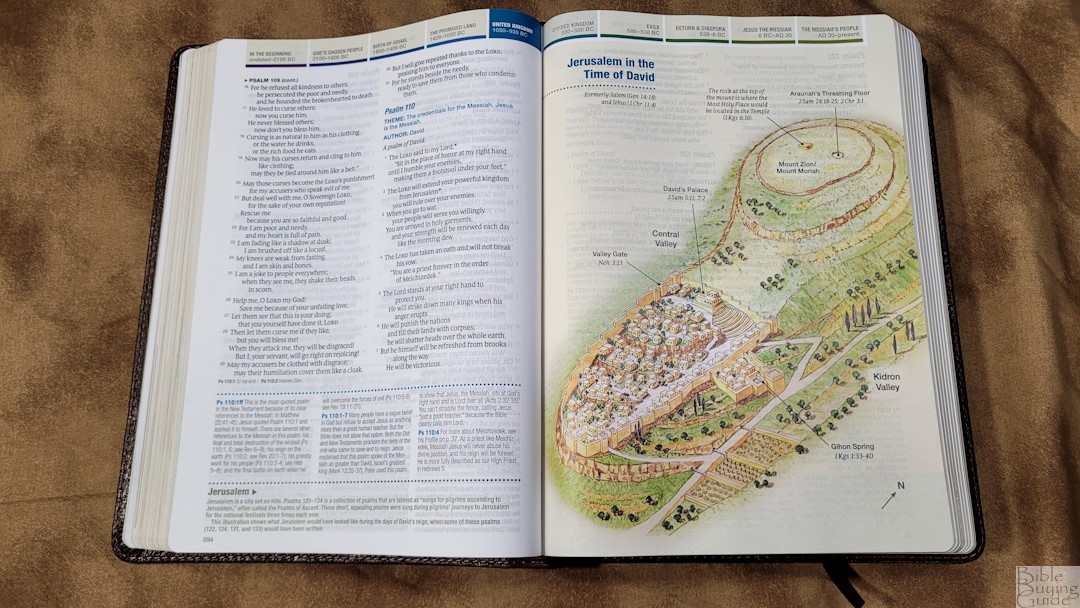
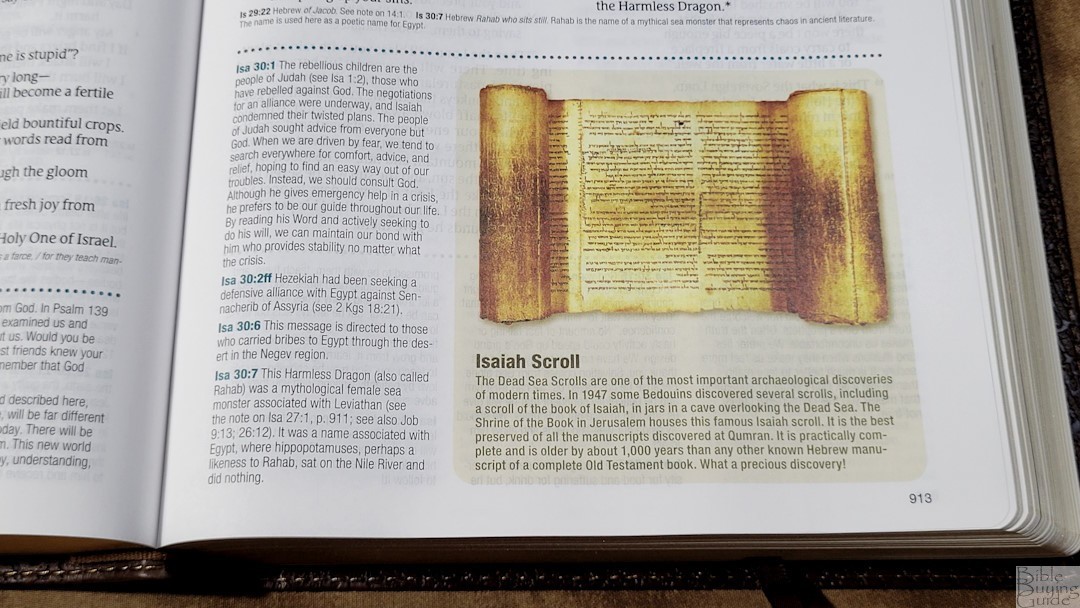
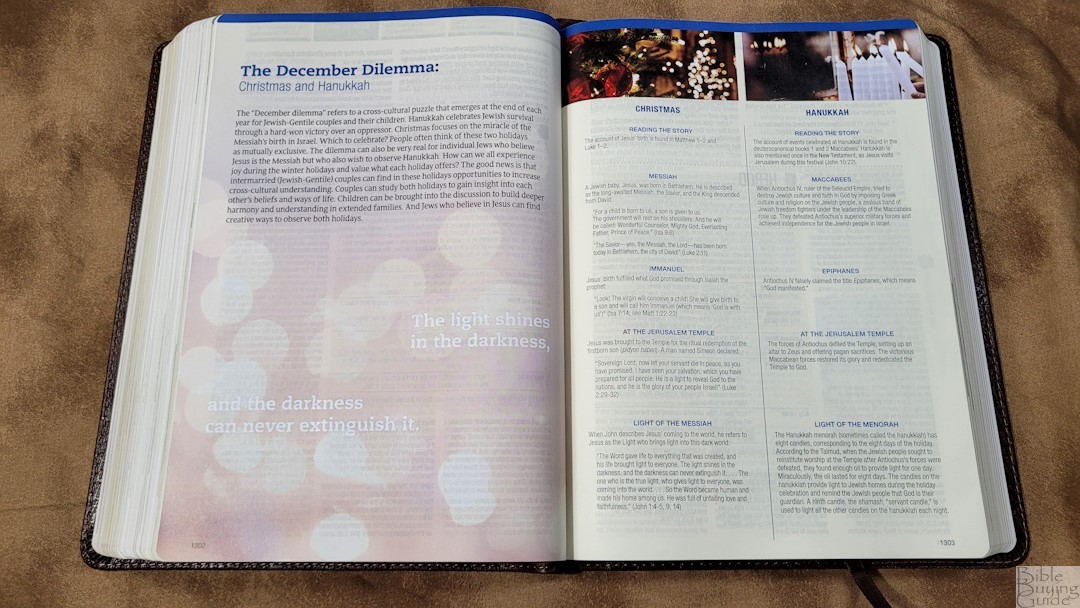
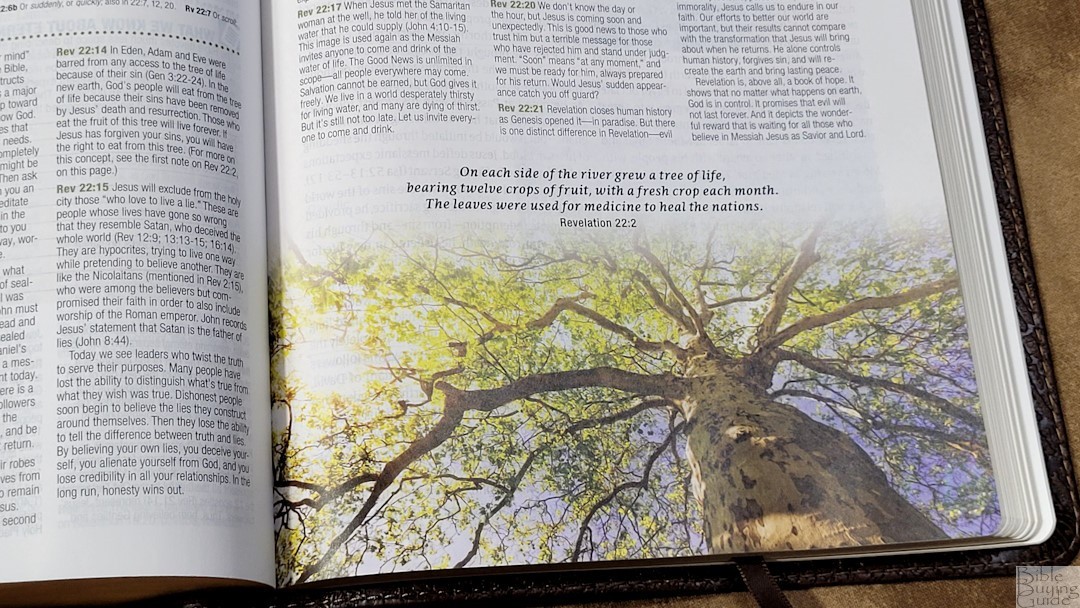
The notes have been updated to include the Jewish roots of Christianity. Archaeological notes show key places, artifacts, and ideas. They’re explained with lots of illustrations and photos to give context. It also includes profiles, maps, and charts. Some of the charts are large, taking several pages. The Harmony of the Gospels is an excellent example.
Story of Redemptive History
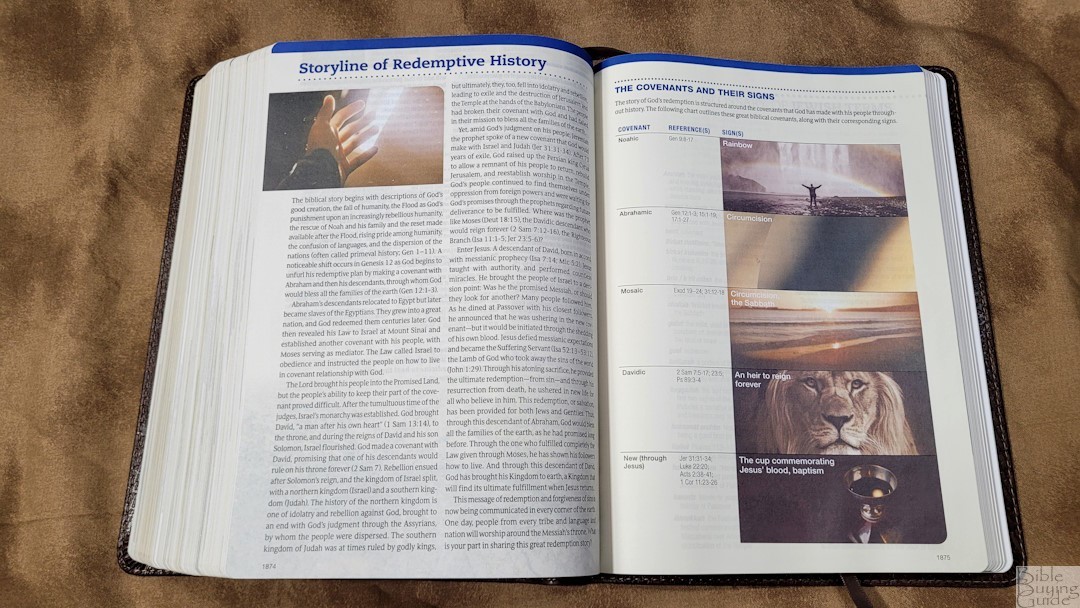
This short article provides a walkthrough of redemption in the Bible.
The Covenants and Their Signs
This is a chart with five covenants. It shows the name, references, and signs of the covenant. The signs include images.
Glossary of Jewish Terms
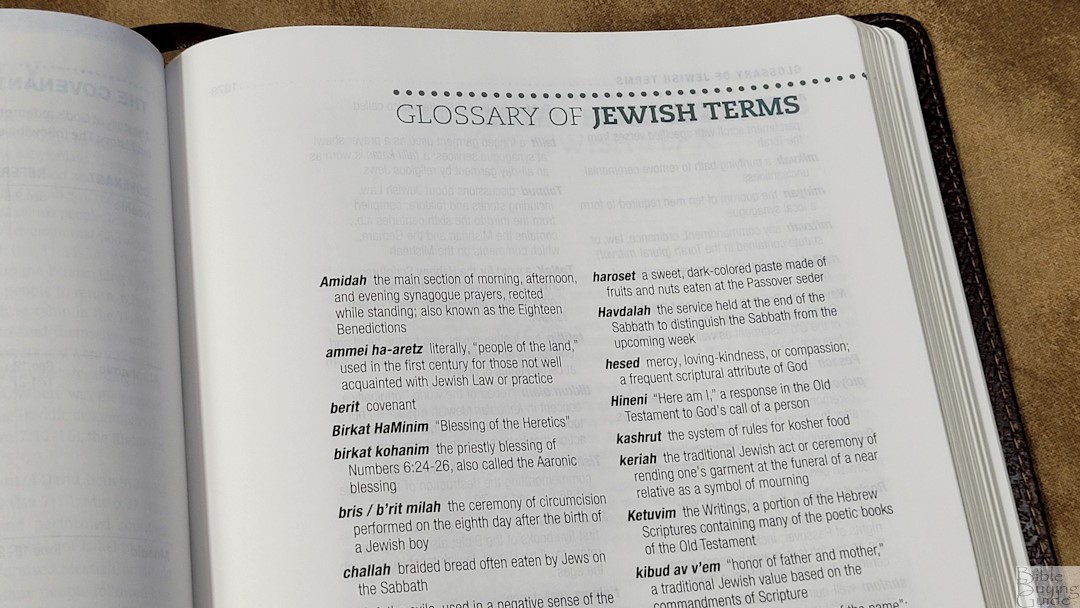
This is a glossary of Jewish words. They’re not found in the English text, but they’re important in Hebrew.
Suggested Bible Readings for the Jewish Year
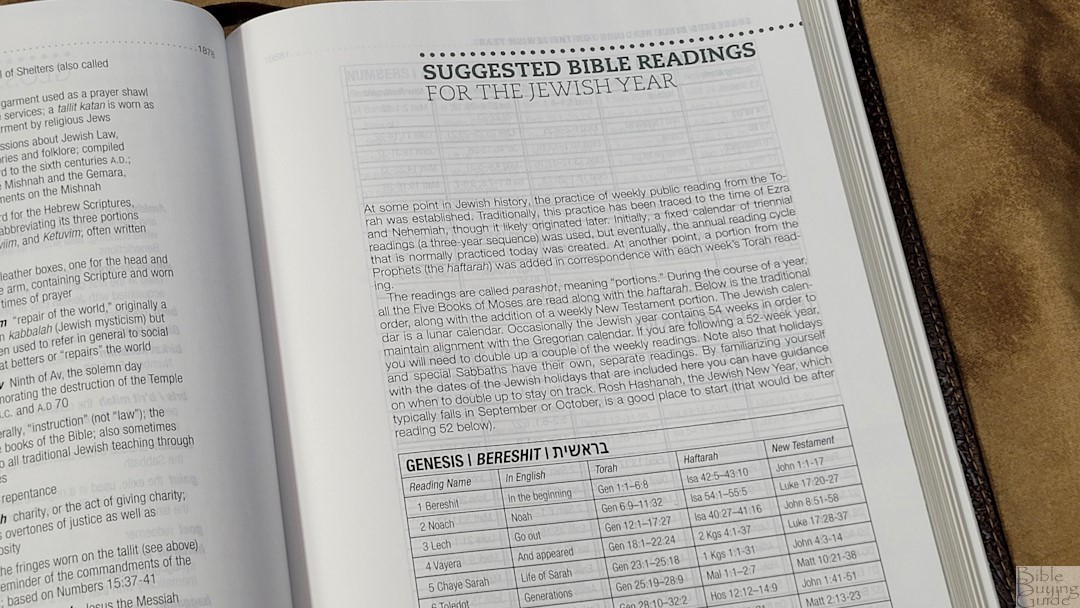
This is a chart that provides the traditional 54-week Jewish reading of the Torah, and adds other places from the Old Testament and the New Testament, giving three locations per reading. It shows the name of the reading in Hebrew and English and includes the Scripture references.
A Resource for Sharing and Growing Our Faith
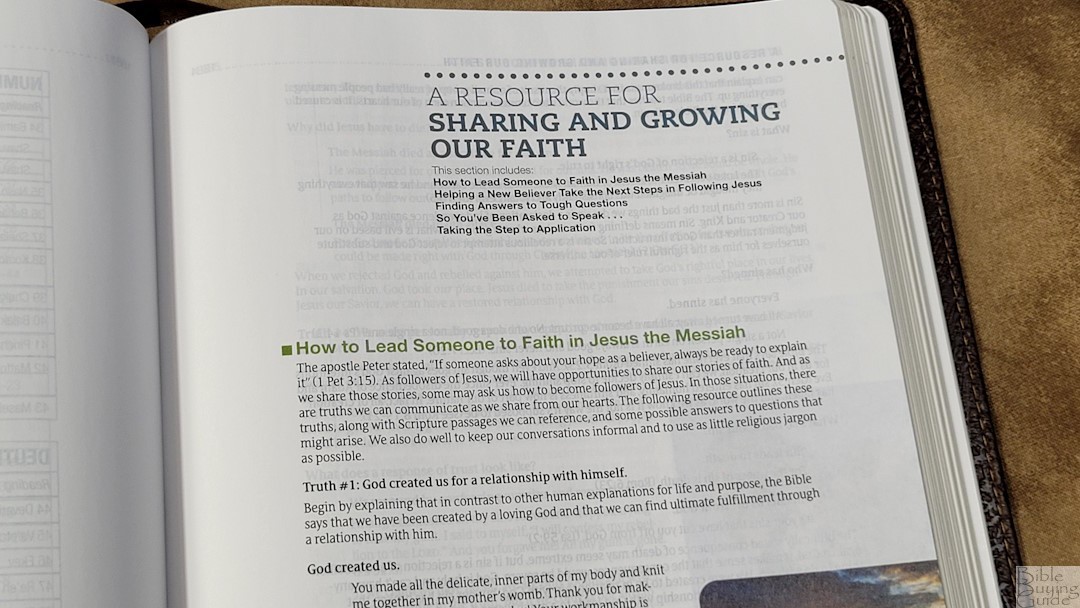
This is a large article that answers lots of questions about sharing the gospel with others from the Reformed point of view. It’s divided into sections and includes lots of study points, assignments, Scripture, questions, and more.
The Bible Book-By-Book
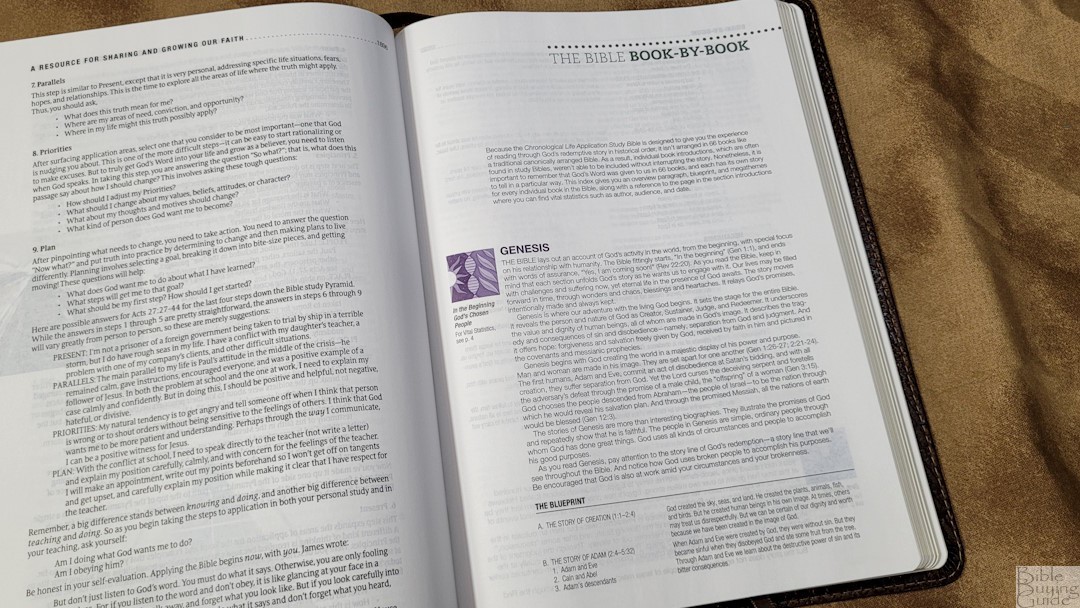
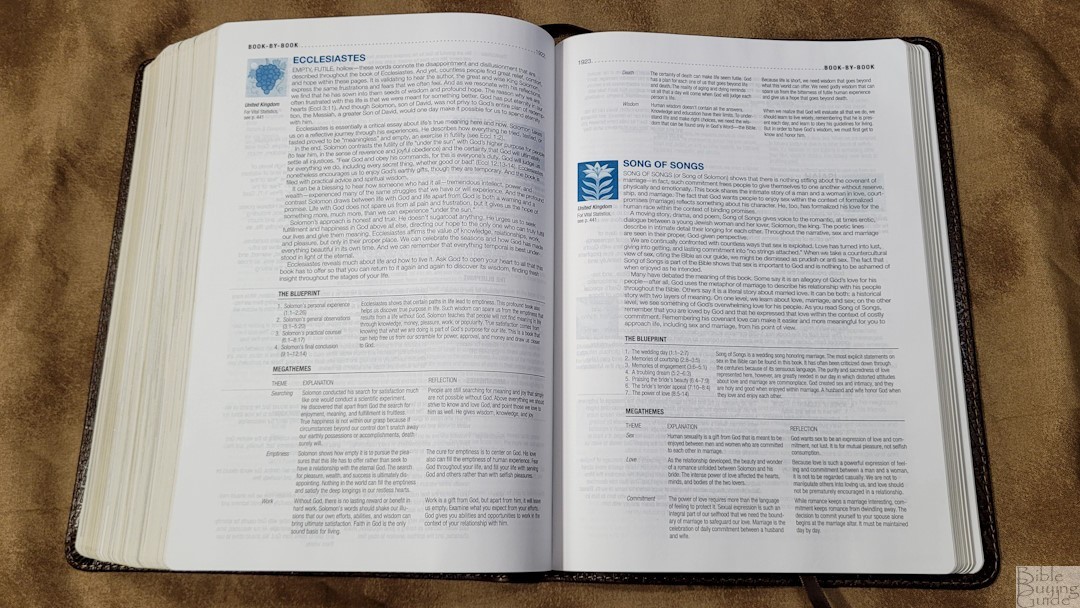
This provides an overview of each book of the Bible, providing book introductions that we’d find in a normal study Bible. Since the books are not printed as books, there’s nowhere in the text to present this information. Rather than lose the information, it’s printed in the back. They include several paragraphs about the main points and events in each book, show an annotated outline, and include megathemes.
Master Index
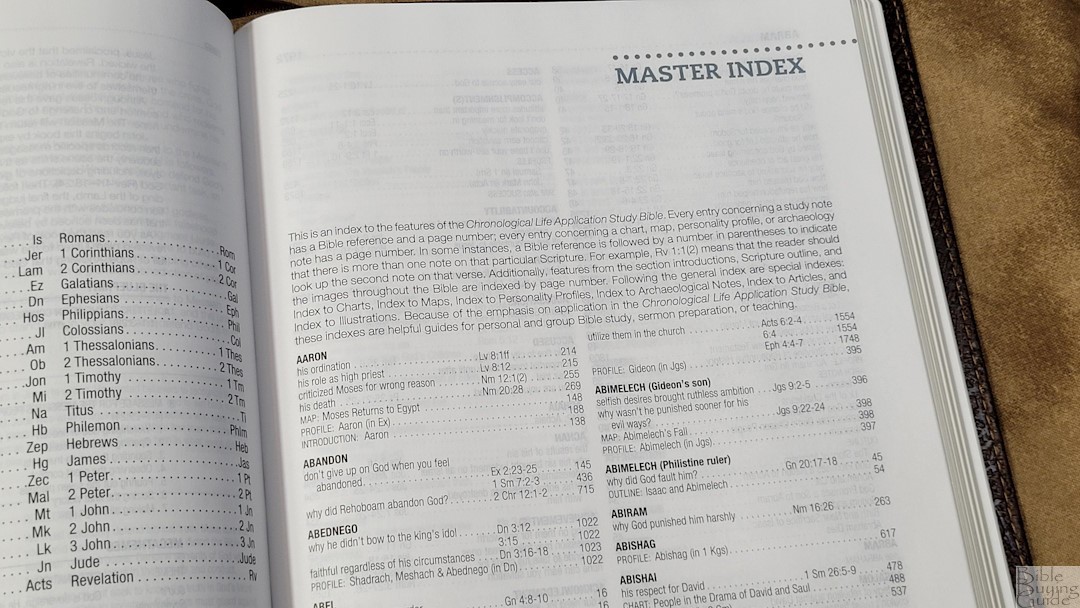
This is an index to all the topics covered in the notes of this study Bible. It divides the main topics into subtopics. It includes the topic names, references, and page numbers.
Features Index
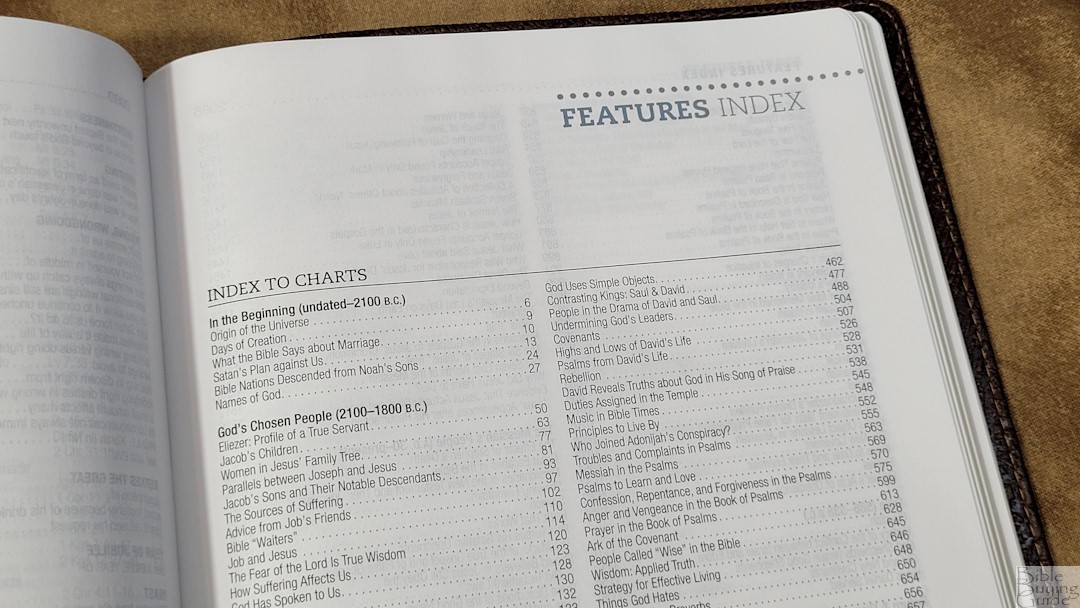
This is an index to all of the charts, maps, personality profiles, archaeological notes, articles, and illustrations found throughout this Bible.
Concordance
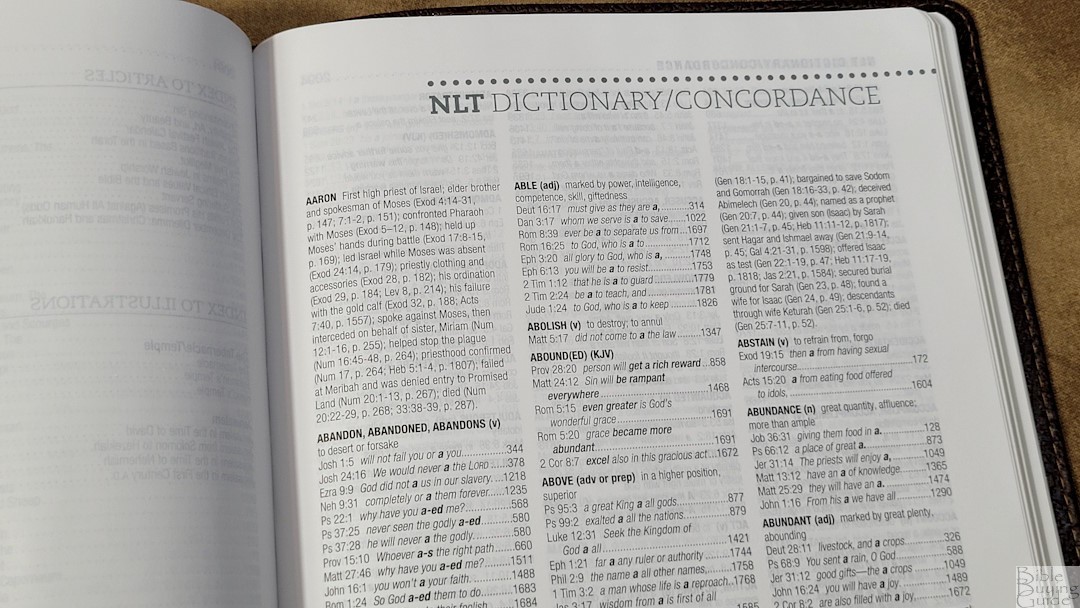
The concordance is a combination dictionary/concordance. It includes the entry, a short definition, and references.
Here are a few examples with the number of references given:
- Christ (n) Son of God, Messiah, Anointed One, see also Jesus, Messiah – 95
- Faith (n) reliance, loyalty, or complete trust in God; a system of religious beliefs; see also Believe, Trust – 57
- Faithful (adj) firm in adherence, utterly loyal; see also Loyal, Trustworthy – 43
- Faithfulness (n) the quality of steadfast loyalty or firm adherence to promises – 15
- God, Gods (n) eternal, infinite Spirit; Creator, Redeemer, sovereign Lord; impotent pagan deity; image of pagan deity (made of wood, metal, or stone); see also Idols(s) – 89
- God-breathed (KJV) – 1
- Godliness (n) devotion to God; piety; see also Righteousness – 4
- Praise, Praises (n) worship; commendation; value, merit – 18
- Praise, Praised, Praises, Praising (v) to worship, commend, or give honor to – 44
- Pray, Prayed, Praying, Prays (v) to address God with adoration, confession, supplication, or thanksgiving; to intercede – 42
- Prayer, Prayers (n) conversation with God – in praise, thanksgiving, or intercession – 20
Maps
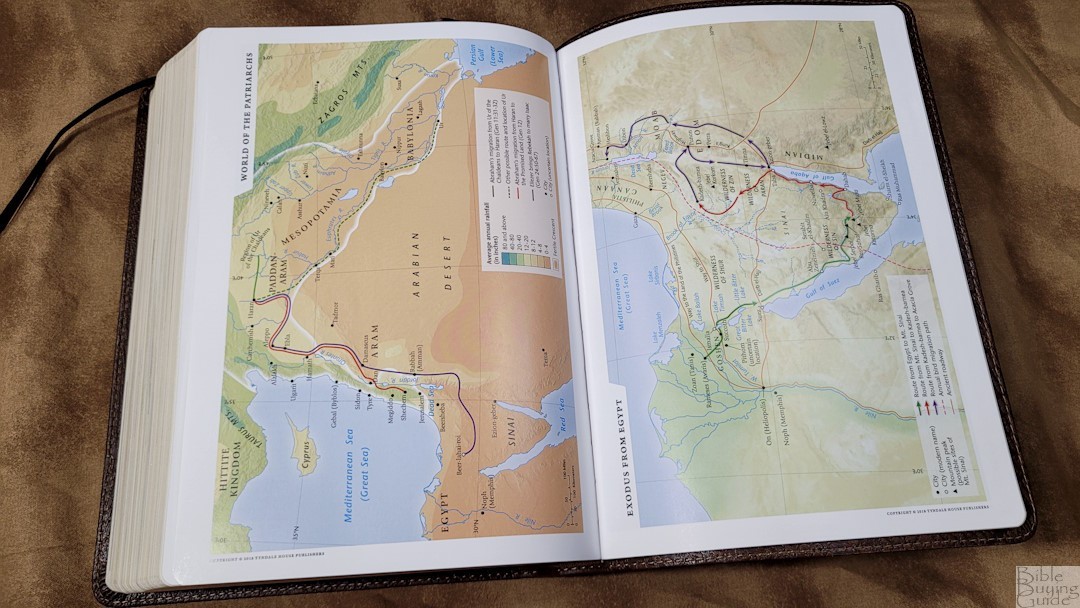
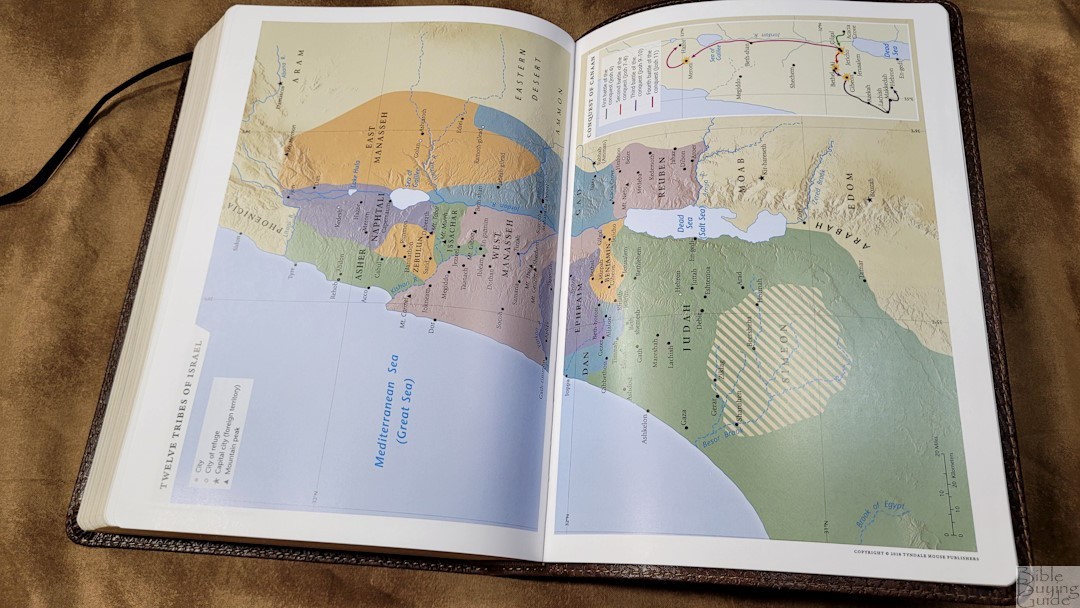
In the back are 19 colorful maps on 16 thick semi-gloss pages. It doesn’t include an index, but the maps have a lot of annotations. They include Topography, elevations, cities, rainfall, mountains, distance, routes, Scripture references, battles, water, historical information, kingdoms, dates, and more. These are some of the most interesting and detailed maps that I’ve seen. It doesn’t include an index. These are the maps used in the NLT Study Bible. Some maps have recently been renamed from “Palestine” to “Isreal” or “The Land”.
Maps include:
- Topography of Israel
- World of the Patriarchs
- Exodus from Egypt
- Twelve Tribes of Israel
- Conquest of Canaan
- United Kingdom
- Divided Kingdom
- Deportations and Returns Under Assyria and Baylon
- Assyrian and Babylonian Empires
- Greek Empires
- The Land in the Late Hellenistic Period
- Old Testament Jerusalem
- New Testament Jerusalem
- The Land in the Time of Jesus
- Ministry of Jesus
- Paul’s Missionary Journeys
- Paul’s Journey to Rome
- Roman Empire and the Spread of Christianity
- Israel and the Middle East Today
Conclusion
The NLT Chronological Life Application Study Bible has a lot to offer. Even though this is a chronological study Bible, it is very much a Life Application Study Bible with lots of charts, profiles, lists, and information. The chronological timeline for the biblical text can be difficult for some to follow, especially in portions such as the gospels where the stories repeat. Also, it’s difficult to know exactly when certain things happened, so there may be differences from one chronological Bible to another.
_________________________________________________________
This Bible is available at (includes some affiliate links)
and many local Bible bookstores
_________________________________________________________
Tyndale provided this Bible in exchange for an honest review. I was not required to give a positive review, only an honest one. All opinions are my own.
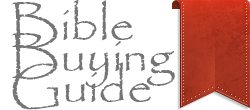
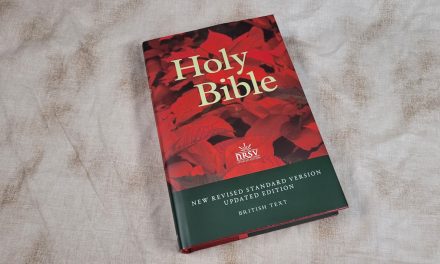

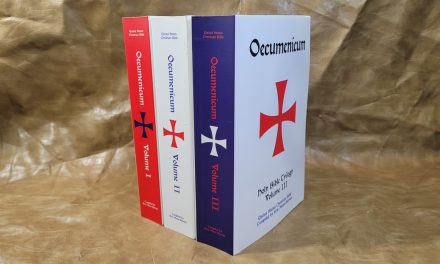
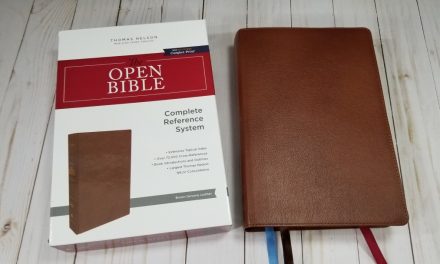
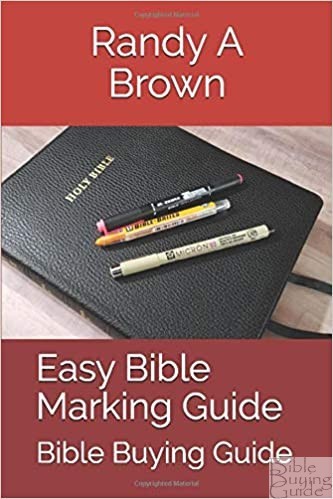
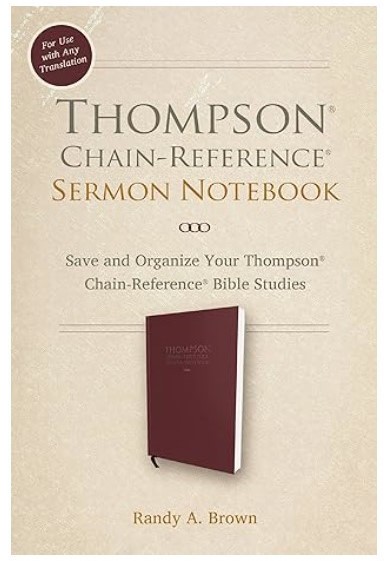
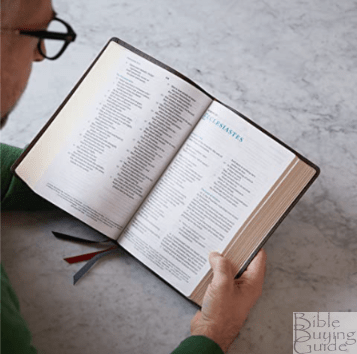


Recent Comments